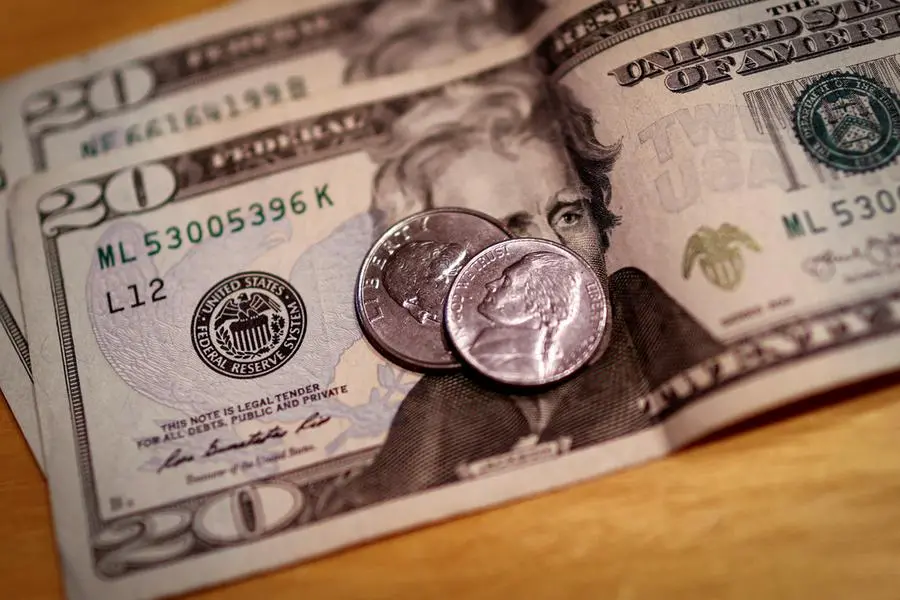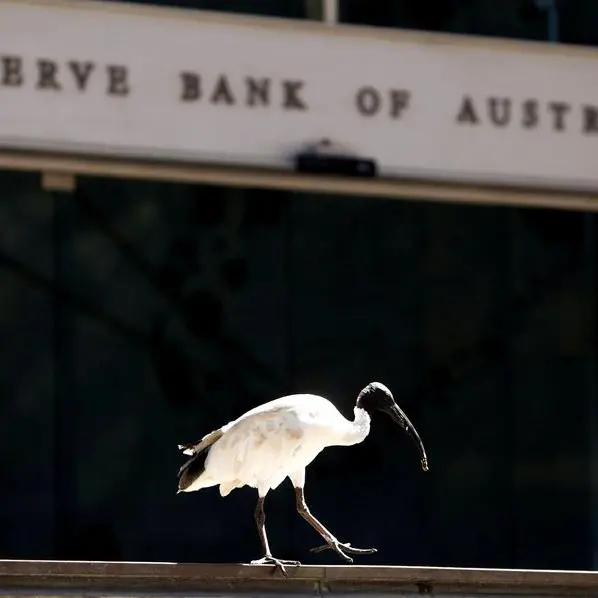PHOTO
LONDON - Corporate credit markets shrugged off last week's equity wobble, setting aside any anxiety about the wider economy, allowing even low-rated firms to raise new debt with ease.
For many investors, so-called junk credit is the canary in the coalmine. It is the first to croak if the economy runs into trouble, and it can also amplify any distress by upping fears of cascading defaults, bankruptcies and job losses.
But there are few if any signs of that fear right now, which underscores how widespread the 'soft landing' consensus is. This also suggests the equity hiccup we saw last week was more about pricey megacaps and Big Tech corrections than a fundamental worry about growth per se.
In fact, default rates are falling again.
Deutsche Bank points out that trailing 12-month defaults for dollar high-yield bonds fell in June to their lowest point in almost a year - to just 3.1%. The default rate of the weakest "CCC"-rated segment fell for the third consecutive month to its lowest since July 2023.
That's below the 4% average default rate of the past four decades and only marginally above the 2.9% average of the past century, according to Schroders.
Yield spreads - the U.S. junk bond borrowing premia over equivalent Treasuries - remain close to their two-year lows. At 353 basis points, they're almost 100bp below levels seen this time last year, and spreads on 'B' and 'BB' segments are the narrowest they have been since the banking and credit implosion 15 years ago.
What's more, junk bonds are outperforming better-rated investment grade debt for the year to date.
And that long-feared 'wall' of maturing debts next year now looks more like a jump-able hurdle, as many companies are having no trouble smoothing out their financing schedules.
In fact, many have been able to raise enough new debt to clear the decks ahead of any market disturbance that could arise around the U.S. election later in the year.
High yield debt issuers have raised $176 billion so far this year - which is almost 80% ahead of last year's pace. And the market has had no trouble absorbing this flood of issuance.
This is partly because demand for high yield debt is high, but supply of new paper isn't.
Credit analysts at giant asset manager BlackRock point out that while a ton of high yield debt has been issued this year, only a minimal amount of new money has been raised. A whopping 75% of new debt sales this year have been earmarked for refinancing, the highest level seen in the post-2008 era and more than 10 points above June 2023 levels.
Highlighting this 'pull forward' in debt sales in both the high-yield and investment-grade markets, BlackRock strategists Amanda Lynam and Dominique Bly reckon management teams are targetting maturities as far out as late 2025 and even 2026 and are keen to avoid any fund-raising difficulties around year-end.
"Corporates may be looking to proactively raise liquidity and avoid potential volatility around certain events later this year - such as the U.S. election," they wrote.
REASSURINGLY EXPENSIVE?
Is the appetite sustainable?
Falling rates without a recession is a powerful combination for anyone wanting to move out of cash and lock in high yields. Some even argue that if you want to avoid Treasuries due to outsize post-election fiscal risks, then corporate credit may be the best middle ground.
But some strategists caution that August and September are seasonally unkind to credit markets. And there is a continual fine balance between falling interest rates and recession risks. "Central banks are late – they usually are - making it important that the data hold up," Morgan Stanley's credit team told clients.
But the U.S. investment bank remains positive and reckons "moderate growth, moderating inflation, moderating policy and robust investor demand" all justify the historical pricing for U.S. credit.
"Spreads should be 'expensive' given this backdrop, and we think they stay that way," they said.
So while we may see a surge in volatility as the election nears, we're unlikely to see a similar spike in defaults.
The opinions expressed here are those of the author, a columnist for Reuters.
(by Mike Dolan X: @reutersMikeD; Editing by Stephen Coates)





















